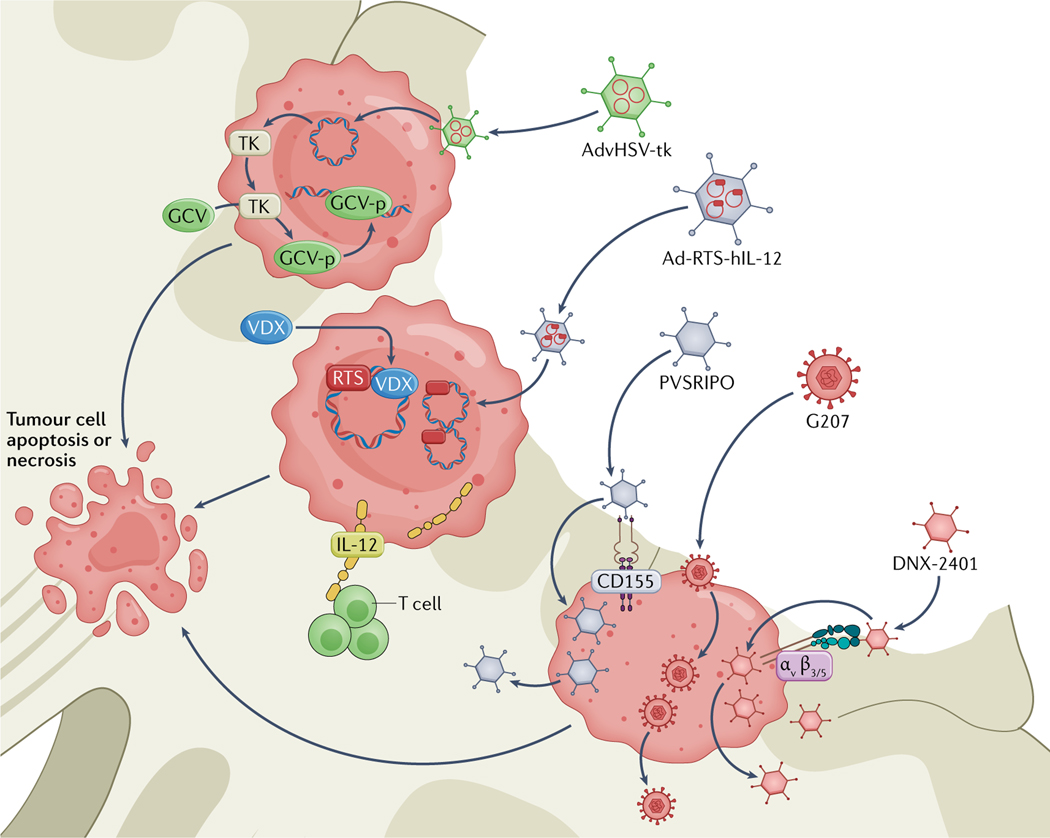Fig. 3 |. Mechanisms of local viral therapies in development for glioblastoma.
AdvHSV-t k is a replication-incompetent adenoviral vector that delivers herpes simplex virus type 1 (HSV-1) thymidine kinase (TK). The transgene is introduced to the cell, and TK is produced. TK phosphorylates systemically administered ganciclovir (GCV) to generate GCV-p, which interferes with DNA repair and replication, eventually leading to tumour cell apoptosis or necrosis. Ad-RTS-hIL-12 is a replication-incompetent adenoviral vector that encodes human IL-12 preceded by a RheoSwitch Therapeutic System (RTS). The DNA construct is introduced into the cell, but can only be transcribed in the presence of veledimex (VDX). When VDX is administered systemically, IL-12 is produced. IL-12 activates T cells and generates an antitumour microenvironment. PVSRIPO is a replication-competent oncolytic polio–rhinovirus chimaera. PVSRIPO enters the cell via CD155, which is abundantly expressed in most glioblastomas. The virus then replicates in the tumour cell, leading to apoptosis and spreading of the virus. G207 is a replication-competent, oncolytic HSV-1 virus that is designed to replicate in tumour cells, causing apoptosis and viral spread. DNX-2401 is a replication-c ompetent adenovirus. The virus enters the cell via αvβ3 and αvβ5 integrins, which are present on glioma stem cells, and cannot replicate when a functional retinoblastoma pathway is present. As this pathway is often inactivated in tumour cells, the virus can cause selective apoptosis or necrosis of these cells.

